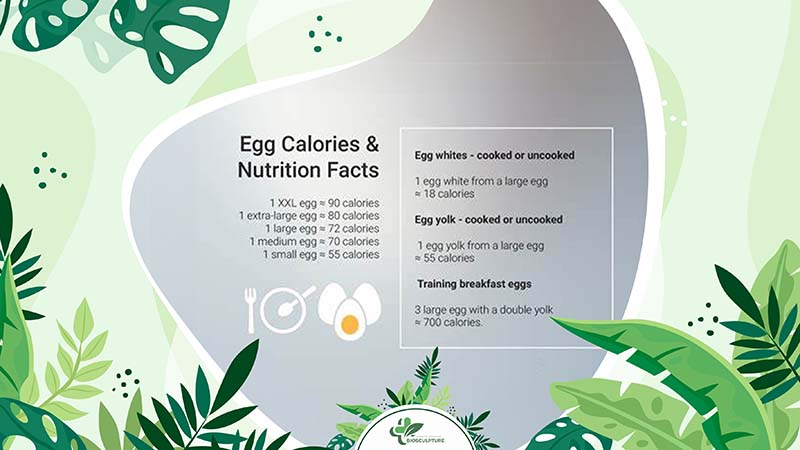Eggs are a nutritious and versatile option for those wondering, “Are Eggs Good For Weight Loss?” Particularly for those aiming to shed extra pounds, eggs can play a crucial role in a weight loss diet due to their high protein content. Protein aids in keeping you fuller for longer, helping to reduce overall calorie intake. Though eggs alone won’t lead to weight loss, they can effectively complement a balanced diet, assisting in controlling hunger and supporting weight management efforts.

1. Nutritional Composition and Value of Eggs
The most common type of egg is the chicken egg, which come in various sizes, typically ranging from 45 to 70 grams each. A typical snack or meal might include two or three eggs, providing you with a range of essential nutrients. In a 100-gram serving of eggs, you’ll find:
- Energy: 143 calories
- Protein: 12.6 grams
- Total lipid (fat): 9.51 grams
- Calcium: 56 milligrams
- Carbohydrate: 0.72 grams
- Dietary fiber: 0 grams
In addition to these nutrients, eggs also contain small amounts of minerals such as iron, magnesium, zinc, selenium, phosphorus, and potassium. They’re rich in fat-soluble vitamins like A, D, and E, as well as various B vitamins. While eggs don’t provide dietary fiber, they do offer complete proteins, containing all the essential amino acids your body needs.
Concerns were once raised about the fat content in eggs, but the majority of fats found in eggs are healthy monounsaturated and polyunsaturated fats. Only about a third of the fats are saturated fatty acids, which should be consumed in moderation. Eggs contain minimal trans fats.
The nutritional profile of eggs can vary depending on how they’re cooked. Boiled eggs retain most of the nutrients mentioned above. However, when eggs are fried, scrambled, or used in omelets, their nutritional value may change depending on the cooking oil or butter used. It’s important to note that fats contribute significantly to the calorie content of meals, with each gram of fat providing approximately 9 calories. Therefore, the type and amount of cooking fat used can impact the overall calorie count of your meal.

2. Can Eating Eggs Help You Lose Weight?
Including eggs in your weight loss journey can indeed be beneficial. They serve as an excellent source of protein, and meals or snacks centered around eggs can help you feel full for longer periods, allowing you to space out your meals effectively. Eggs are renowned for their high protein quality, digestibility, and utilization by the body, which contribute to sustained feelings of satiety—a crucial factor in any successful weight loss endeavor.
However, it’s important to understand that while eggs are nutritious, they aren’t a magic solution for shedding belly fat or achieving weight loss on their own. Weight loss requires more than just incorporating specific foods into your diet; it necessitates a comprehensive plan aimed at achieving a negative energy balance.
To effectively lose weight, it’s recommended to aim for an energy intake target that is approximately 30% less than your daily requirement. For women, this typically ranges from 1,200 to 1,500 calories per day, while men should aim for 1,500 to 1,800 calories daily. Your specific calorie needs may vary based on factors such as body weight and level of physical activity, so consulting with your doctor or a registered dietitian is advisable.
Ultimately, the key to successful weight loss lies in adopting a balanced diet that creates a calorie deficit while incorporating nutrient-rich foods like eggs, alongside regular physical activity.

3. How Many Calories Are in an Egg?
The calorie content of an egg can vary depending on its size. On average:
- A small egg contains around 55 calories
- A medium-sized egg has about 66 calories
- A large egg typically contains approximately 80 calories
- A very large egg may have around 90 calories
It’s important to note that the calorie count of an egg can also be influenced by how it’s prepared and any additional ingredients used during cooking.

4. What Is the Best Way to Eat Eggs for Weight Loss?
Incorporating eggs into a healthy diet is key for weight loss success.
Research suggests that consuming eggs at breakfast may be particularly beneficial, as it can help reduce overall calorie intake throughout the day.
Eggs are not only nutritious but also versatile and easy to prepare. They can be enjoyed in various ways, including:
- Baked
- Boiled
- Made into an omelet
- Scrambled
- Poached
To boost the nutritional value of your meal and enhance satiety, consider pairing eggs with vegetables at breakfast for a fiber-rich and filling combination. Alternatively, add hard-boiled eggs to a salad at lunchtime for a protein-packed midday meal.
For a satisfying dinner option, try topping a quinoa salad and sautéed greens with a poached egg, creating a hearty and nutritious dish that supports your weight loss goals.

5. How Many Eggs Should You Eat Per Day?
There isn’t a one-size-fits-all answer to how many eggs you should eat daily. Consuming one to three eggs per day can offer various health benefits, but the ideal amount may vary from person to person.
Recent research has debunked previous concerns about the impact of egg consumption on heart health, showing that eating eggs doesn’t significantly increase the risk of heart disease, despite concerns about cholesterol levels in eggs.
However, for individuals managing diabetes or heart disease, it may be prudent to limit egg consumption to no more than three egg yolks per week. Overall, most healthy individuals can safely enjoy up to seven eggs per week without adversely affecting their heart health.
It’s crucial to consider individual health conditions and dietary preferences when determining the appropriate amount of eggs to include in your diet. If you have specific health concerns or dietary restrictions, consulting with a healthcare professional or registered dietitian can provide personalized guidance.
6. 5 Mistakes to Avoid When Eating Eggs for Weight Loss
Mistake 1: Eating Only the Whites
Don’t discard the yolk! While it contains most of the egg’s fat, remember that dietary fat doesn’t directly lead to body fat gain; excess calories do. Plus, the yolk holds half of the egg’s protein and is packed with essential nutrients like choline, folate, iron, and various vitamins. Embrace the whole egg for its nutritional benefits.
Mistake 2: Limiting Eggs to Breakfast
Eggs aren’t just for breakfast! Incorporate them into lunches, dinners, or snacks for a versatile and nutritious boost. Enjoy egg salad sandwiches, poached eggs atop salads or grain bowls, or add them to burgers or stir-fries. Hard-boiled eggs seasoned with salt and pepper make a satisfying snack between meals.
Mistake 3: Cooking Them with Unhealthy Fats
Avoid frying eggs in butter or margarine, as it can detract from their nutritional value. Opt for cooking oils rich in unsaturated fats like olive, avocado, or canola oil instead. Alternatively, choose poached or boiled eggs, which require no additional fats for cooking.
Mistake 4: Pairing Them with Bacon and Other Unhealthy Breakfast Foods
While eggs themselves are nutritious, be cautious of what you pair them with. Avoid highly processed meats like bacon or sausage, as well as refined grains like pancakes or waffles. Instead, pair eggs with vegetables and a small amount of cheese for an omelet, or enjoy them with whole-grain English muffins and fruit or yogurt for a balanced meal.
Mistake 5: Eating Too Many
While the previous limit on dietary cholesterol has been lifted, it’s still important to consume eggs in moderation. Aim for an average of one egg per day, according to Harvard Health Publishing. If you have diabetes or are at risk for heart disease, consider limiting egg consumption to no more than three per week.
Note: Remember, moderation and balance are key. Incorporating eggs into a varied and balanced diet alongside other nutrient-rich foods can support your weight loss goals effectively.
7. Conclusion
In conclusion, the question “Are Eggs Good For Weight Loss?” can be met with a resounding yes. As a powerhouse of protein and essential nutrients, eggs support satiety and muscle maintenance, key components for effective weight loss. Their versatility in meals from breakfast to dinner makes them an ideal choice for anyone looking to manage their weight. By incorporating eggs into a balanced diet, you’re not just enjoying a delicious meal; you’re also taking a step towards a healthier lifestyle. And don’t forget to follow Biosculpture for more interesting and useful information.


